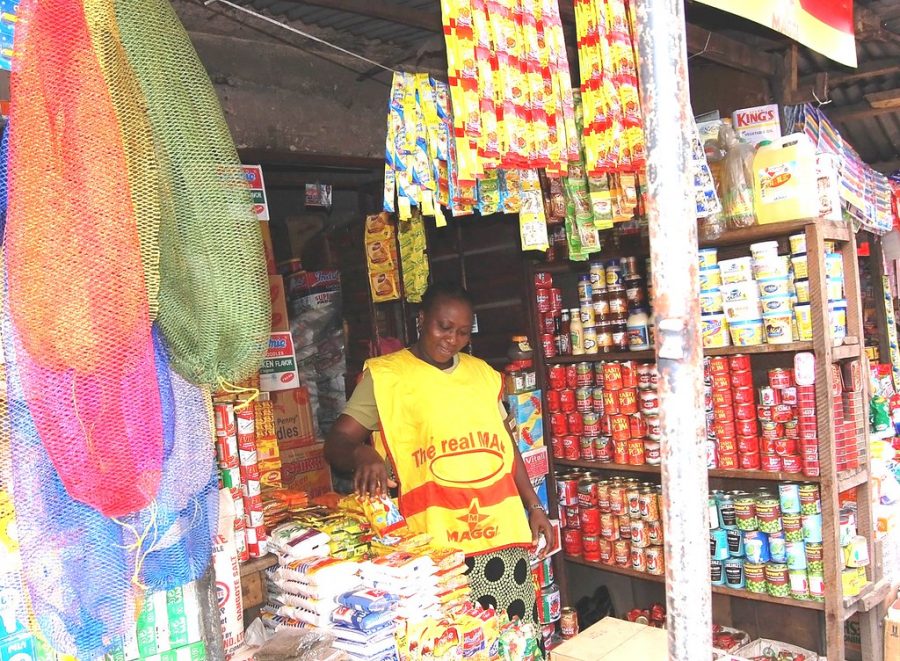The latest report released by SB Morgen (SBM) Intelligence shows that Nigerians who earn less than the newly approved N30,000 minimum wage spend 95% of their income on food consumption.
According to the SBM report titled, discretionary income Nigeria, Nigerians who earn less than the minimum wage spend almost all their income on food, and this is natural as such people must find a way to fit in their expenditures into their earnings.
Income distribution: Specifically, the survey was conducted in July 2019 across 13 cities which include Ibadan, Suleja, Abuja, Kaduna, Kano, Jos, Makurdi, Port Harcourt, Owerri, Onitsha, Warri, Benin City and Lagos.
READ ALSO: If you experience these signs then know your salary is not enough
- SBM categorised the income distribution of respondents into four categories. Out of 1,633 respondents across 13 states, 7% earn more than ₦120,000 per month, while 6% of them earn nothing.
- The largest concentration of respondents (29%) earn wage between ₦50,000 and ₦80,000 per month.
- Also, a total of 71% of respondents earn their income in the 3 salary ranges that encompass ₦30,000 and ₦120,000 per month.
Money spent on food: It was found that 94% of those who earn nothing, presumably mainly young people, spend less than ₦30,000 a month on food, while the rest spend between ₦30,000 and ₦60,000 monthly on food.
- For the Nigerians who earn less than the minimum wage, the report shows they spend less than ₦30,000 monthly on feeding. Meanwhile, 5% of them spend more than they earn on feeding.
- For people who earn slightly above the national minimum wage (₦30,000 to ₦50,000 monthly), 84% spend less than ₦30,000 per month on feeding, while 16% spend between ₦30,000 and ₦60,000 per month on food, that is slightly above their income.
- The findings also show that 74% of earners of ₦50,000 to ₦80,000 per month spend less than ₦30,000 per month on food.
- Lastly, 62% of earners of ₦80,000 to ₦120,000 per month spend less than ₦30,000 a month on feeding.
READ MORE: Sniper makers should be worried about NAFDAC’s “ban” on the product
The big drop: According to SBM report, the most dramatic drop, naturally, occurs in the group of highest earners – people who earn more than ₦120,000 per month. Only 17% of them spend less than ₦30,000 on food monthly.
- However, none of the respondents in the category mentioned above spends more than ₦60,000 a month on food, suggesting that for an individual in Nigeria, ₦60,000 each month may be the right pressure point for a decent meal, and that the highest earners have other things to think about apart from food.
- It was revealed therefore that for non-food items that are susceptible to discretionary spending, most Nigerians need to earn at least above ₦60,000 to be within the addressable market.
Spending on other items: The report shows that other items Nigerians spend on include internet, mobile phone recharge cards and clothing. Specifically, 63% of the respondents revealed that after taking care of food, they often have nothing left to spend.
- Specifically, 10% of the respondents spend money on clothing, and mobile phone recharge cards to keep connected either via phone calls or on the internet.
Reflecting on Nigeria’s housing shortage: Only 2% of the respondents spend their discretionary income (income after essential commodities) on rent. It is more likely, however, that most Nigerians do not cater for rent from their monthly income and usually find other sources that will yield sizeable lump sums, either by borrowing or by looking for alternative income sources apart from their primary sources to deal with rent and school fees.
The conclusion: Nigeria’s true market size is really the number of people who can spend on discretionary items once they get past spending on the essential commodities, and SBM survey puts the population under 37%.
According to SBM, the two most important policy thrusts that the government must make central to its policy planning are to reduce the cost of food in order to free up more discretionary income as well as to increase productivity and therefore the income of Nigerians.
It is also important for government to facilitate access to credit in order to cater to bulk expenses such as rent and school fees, as well as increase the discretionary income pool. Without an increase in discretionary income, savings are unlikely to increase and therefore investable funds within the economy will remain relatively low.
SBM concluded that it is only when discretionary income increases that Nigerians will be able to afford more products, creating the environment for new businesses to thrive.
